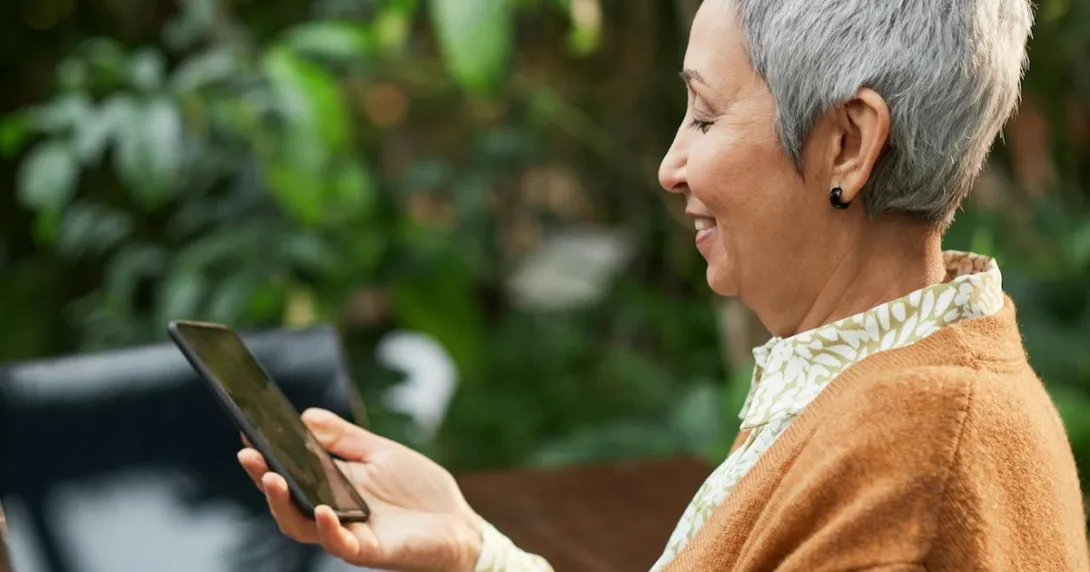
Dementia in Asia-Pacific is expected to triple by the end of the decade.
In Asia's fast ageing populations, including Singapore, Hong Kong, and Taiwan, new projects have come up with mobile and AI-powered solutions to address mild cognitive impairment (MCI) or pre-dementia early on.
Remote cognitive health monitoring
A large-scale, longitudinal study in Singapore remotely monitors and assesses solo-living seniors' cognitive health status over time.
"This is the first long-term study using data quietly collected from everyday life at home," claimed co-study lead and Singapore Management University professor Tan Ah Hwee.
Prof Tan is working with Dr Iris Rawtaer, associate professor, head of the Department of Psychiatry, and research director at Sengkang General Hospital, on the Sensors In-home for Elder Wellbeing (SINEW) project. They aim to detect MCI early to enable timely intervention.
The project utilises sensor-based, ambient smart home devices and AI technology to non-intrusively monitor seniors at home and assess their cognitive and functional health. It passively tracks their daily behaviours, including movement, room transitions, sleep, and medication taking, as well as their physical parameters such as steps and heart rate. A dashboard was also developed for monitoring the installed sensors and tracking participants' digital biomarker values over time.
Since 2020, the researchers have conducted annual assessments of data from over 200 senior participants to determine their cognitive status.
The project builds on their two-month pilot study in 2020 by deploying an explainable predictive AI model that can handle noise and accurately capture sensor data in a real-world environment and explain its prediction of normal cognition or MCI. "Sensor data from real homes is often messy and incomplete. But our team has shown that with smart modelling, we can still spot early signs of MCI with up to 90% accuracy," noted Prof Tan.
The AI, trained on data from 63 seniors, has been validated to achieve over 90% accuracy in identifying MCI, compared to the 70% accuracy recorded in the initial study.
"This project represents an important step forward in how we detect and respond to early cognitive decline. By bridging healthcare and computer science expertise, we are not just developing smart tools, but are creating scalable solutions that can identify signs of dementia before they become clinically obvious," shared Dr Rawtaer.
The remote monitoring system, according to Prof Tan, could be used to quietly support ageing-in-place, especially for seniors living alone or with caregivers, as well as help families and care teams catch early warning signs before problems become serious.
Mobile cognitive rehab app
In Hong Kong, researchers from Hong Kong Polytechnic University (PolyU) developed a mobile-based cognitive remediation programme for seniors experiencing memory difficulties, MCI, and mild dementia.
Called Enhancing Memory in Daily Life (E-MinD Life), the programme incorporates semantic and perceptual encoding techniques, which allow humans to learn new information, into 12 common instrumental daily tasks, including doing household chores, shopping, and managing finances.
The nine-week programme, which is delivered through three 60-minute sessions per week, helps delay the progression of an individual's cognitive decline, preventing further difficulties in doing basic daily activities and complex tasks.
"Semantic-based memory, also referred to as conceptual knowledge or declarative memory, encompasses our long-term understanding of objects, word meanings, facts, concepts, rules and people, acquired through our lifetime experiences. While these knowledges are organised into networks of connected ideas or concepts, semantic memory encoding enables us to associate new information with what we already know and remember it more efficiently," explained E-MinD Life project co-lead and PolyU rehabilitation sciences professor Karen Liu.
"Perceptual-based memory encoding, on the other hand, involves capturing and storing visual information, such as images, in memory to help with recall."
Besides providing personalised intervention, the programme can also be deployed as a community-based intervention, according to PolyU.
The programme, designed as "cost-effective, self-administered and time-flexible," has been evaluated in a pilot study in Australia, where it was found "enjoyable and beneficial," the university's media release noted. A Chinese version of the application is underway for trial use in Hong Kong.
Mobile gait analysis for early dementia
Meanwhile, Acer Medical will be testing an AI-integrated mobile solution for tracking gait abnormalities to support the early diagnosis of dementia and Parkinson's disease in elderly care facilities in Taiwan.
The Taipei-based company collaborated with Japanese ICT firm Fujitsu to develop a mobile gait analysis application called aiGait.
It integrates Fujitsu's skeleton recognition AI from its AI judging support system for competitive sports, which is said to greatly reduce jitters or estimation errors in posture recognition – improving on existing imaging-based tools for analysing movements related to dementia and Parkinson's disease.
The integrated solution assesses captured movements from mobile devices, such as walking, standing, and sitting, and provides a detailed motion analysis.
Based on a press release, Acer Medical will test the mobile gait screening tool at Taipei Veterans Hospital's day care centre. It looks to roll out the solution across senior care facilities by year-end.
Moreover, the partners will explore expanding the mobile app to sports science analysis, pediatric neurodevelopmental disorders, and cerebral palsy.
